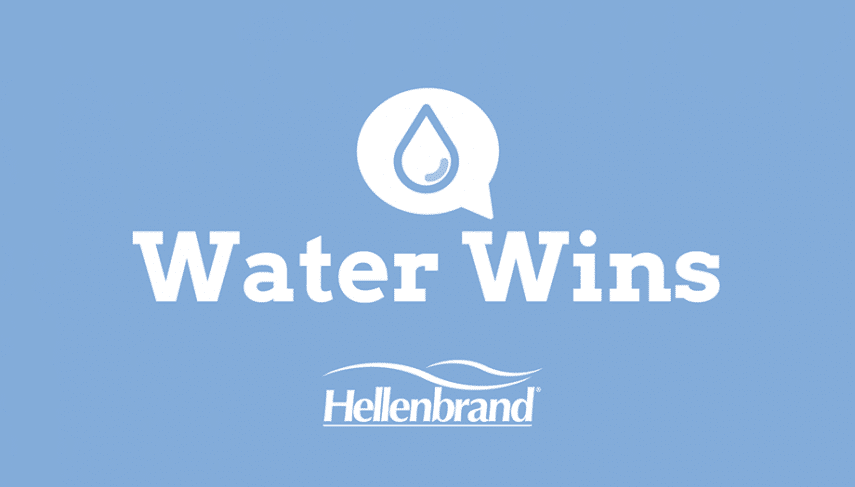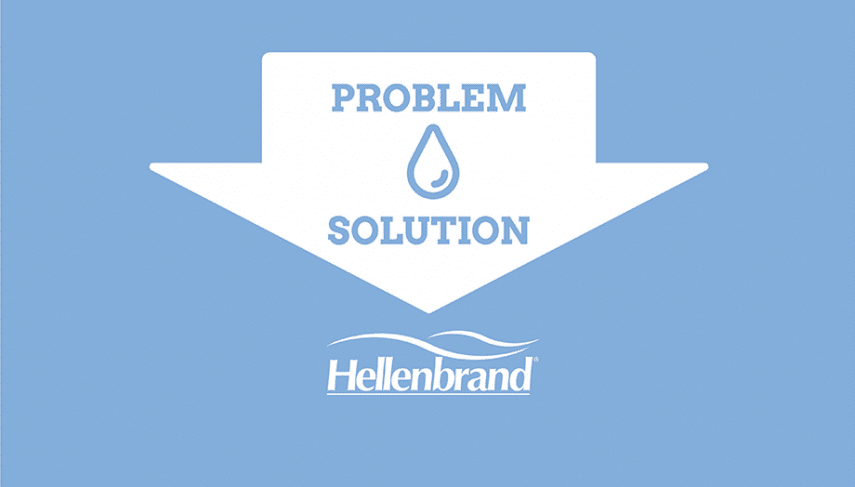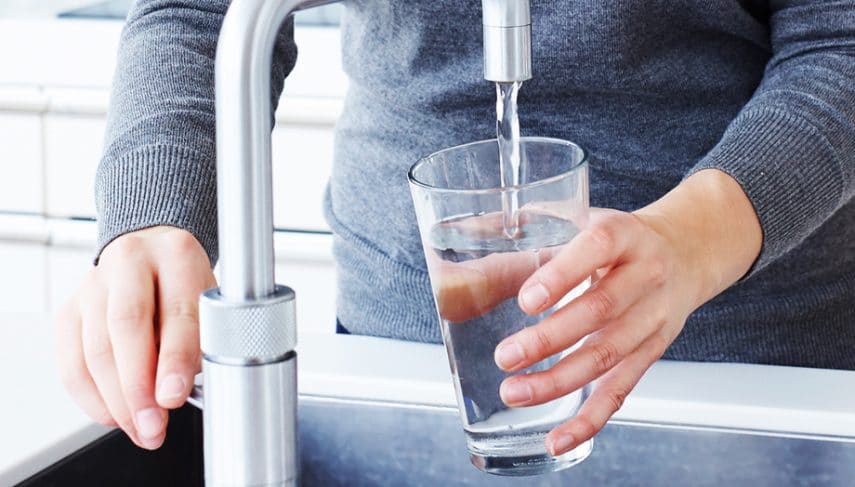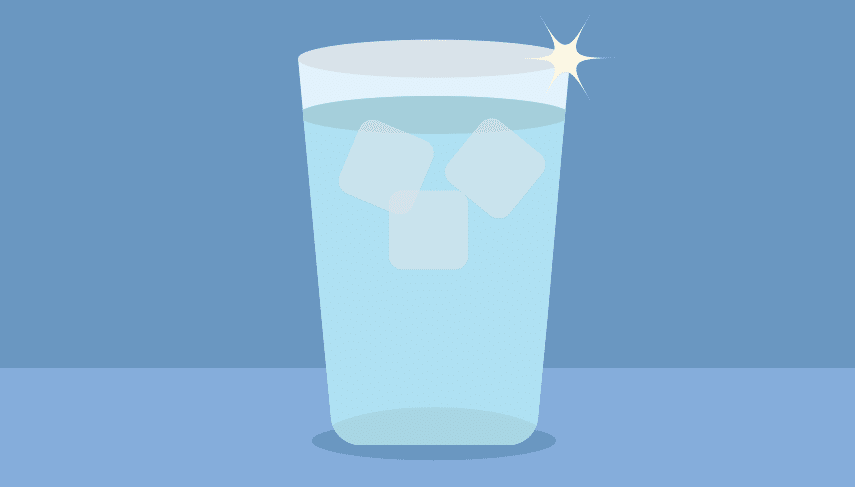Water Wins: Installation Testimonials

Water Wins: Testimonials from Satisfied Customers
We spoke with satisfied homeowners just like you about their Hellenbrand experience. This is what they said…

We spoke with satisfied homeowners just like you about their Hellenbrand experience. This is what they said…


Whether you are house-hunting or have recently purchased a house, you’re probably focused on getting your home ready for your family. One question you should be asking is if your home’s water quality is good.
To find out, get your home’s water tested by a local water professional, like Hellenbrand. The free water analysis will tell you if you have hard water, iron or other contaminants in your water. After all, you have enough to worry about when settling into a new home; you shouldn’t also be worrying about your home’s water quality.
Here are the four things you should know about your water.
Contaminants in your water like lead, arsenic, radium and nitrates can he harmful for your family’s health. In addition to reducing dangerous impurities, filtering your home’s drinking water can result in better tasting water (and therefore, better tasting coffees, teas, soups and sauces).
Additionally, filtering your home’s drinking water can save you money and reduce plastic waste by eliminating the need to purchase bottled water.
Hard water is caused by excess minerals like calcium and magnesium in your water. It can cause spots on your dishes and can cause your clothes to be stiff and scratchy after washing them. Hard water can also cause itchy skin.
Mineral build-up occurs on appliances using hard water, like a dishwasher or washing machine. This reduces the lifetime and efficiency of your appliances. By using softened water, homeowners can save up to 70% on soap and water usage because their appliances are running more efficiently.
Iron, as well as other substances like manganese and hydrogen, can sometimes be found in well water supplies. Manganese and hydrogen sulfide can cause taste, color and odor concerns.
Iron causes rust stains on your drains, faucets and water-using appliances. It can negatively affect the efficiency and lifespan of your appliances. Iron in your water can also dull your clothing’s colors and cause white clothing to become dingy.
Whether you have hard water, iron or contaminated water, Hellenbrand’s family of water professionals can help you choose the right products to provide your family with cleaner, healthier water.
Locate your nearest Hellenbrand dealer for a free water test to learn more about your home’s water.

When thinking about your family’s health, maintaining an active lifestyle and healthy diet likely come to mind, but have you considered how your home’s drinking water affects your family? Contaminants in your unfiltered drinking water can be harmful to your home, but reverse osmosis can ensure you’re providing your family with cleaner, healthier water.
To understand reverse osmosis, it helps to first understand osmosis. Osmosis is a naturally occurring process by which water with a low concentration of dissolved minerals will move through a semi-permeable membrane to mix with water with a higher concentration of dissolved minerals.
Reverse osmosis is the opposite process. The water is pushed the reverse way through a semi-permeable membrane, which allows water molecules, but not contaminants, to pass through. In doing so, the cleaner water is left over.
Reverse osmosis filtration is more advanced than other types of drinking water filtration. The benefits of reverse osmosis include reducing up to 99% of the harmful impurities, like nitrates, arsenic, lead and radium, in your home’s tap water.
Using water filtered through reverse osmosis can also improve the taste of coffee, tea, soups and sauces and can be used for healthier baby formula. Reverse osmosis can even save you money and reduce plastic waste by eliminating the need to purchase bottled water to enjoy fresh, clean water.
A Millennium Reverse Osmosis system from Hellenbrand can be installed under your kitchen sink or in a cabinet. The system uses four stages of advanced filtration, including a spiral-wound reverse osmosis membrane, to reduce contaminants in your drinking water, so your family can enjoy the freshest, healthiest water possible.

No one likes getting spotty dishes from the washer or dry skin after they shower. See how we can help you get clean, soft water for your family—the way it should be.
That metallic taste in your water and drinks is from contaminants left behind from standard filtration systems. Learn about our extensive filtering systems and take back your water.
Noticing a gas smell or other odors and rusting around the faucets in your home? A rotten egg smell in your house can be attributed to excessive iron in your water. See how we can help fix and get things back to normal.

As a homeowner, it’s easy to forget all the ways water impacts your daily life … until there’s a problem. To help, we put together some common signs of water issues. Do any of these sound familiar?
From cooking meals and washing dishes to drinking and cleaning, you probably use water in the kitchen more than any other room at home. Here are some of the major ways water can impact the kitchen.
Throughout its journey before entering your home, water can collect contaminants from corrosion, leaks or aging infrastructure. When your water goes through a reverse osmosis system like the Millennium RO, large particles like chlorine are captured and separated from the treated water while carbon filters remove or reduce residual tastes, odors and other organic contaminants that come from bacteria.
Noticing a rotten egg odor around your sink? That’s likely hydrogen sulfide in your tap water left behind by standard filtration systems. Along with its potent smell, sulfide adds a metallic taste to everything you eat and drink, including soup, pasta and coffee.
Perhaps the most noticeable signs of hard water at home are the spotty bowls and plates you keep pulling from the dishwasher. Hard water causes white spots and build-up to appear on your dishes, even after you’ve cleaned them! Preventing hard water build-up can even extend the lifetime of water-using appliances, like your dishwasher.
While the role water plays in your bathroom is clear (e.g., brushing teeth, washing hands, showering, etc.), problems with your water here can be a little less obvious. Here are some of the most common ones.
Chlorine used by cities to disinfect public water (think swimming pools and park fountains) can cause itchy skin as well as unmanageable hair and dry eyes.
If you start to see stains that are blueish-green, then most likely your home’s plumbing has copper corrosion. Reddish and yellow–tan discolorations are often caused by iron, while black or dark brown discolorations point to manganese. An iron filtration system like the Promate 6 Storm can reduce the amount of iron and manganese in your water.
Hard water will leave behind hard-to-clean film and scum on shower walls and tubs.
When thinking about water in your home, the laundry room might not be the first area that comes to mind. The effects of hard water here, however, can make a big impact on your daily life.
Hard water causes stiff clothes, pesky stains and scratchy fabrics. Using a water softener like the ProMate EcoMax can result in whiter and brighter clothes along with smoother, softer fabrics.
Build-up from hard water can affect the overall efficiency and performance of your washer. Using softened water for laundry can help your washer run at peak efficiency and can help you save up to 70% on soap and detergent.
Think you have a water problem at home? Get a free water analysis by contacting your nearest dealer and they’ll help you figure out the best solution for your home.
